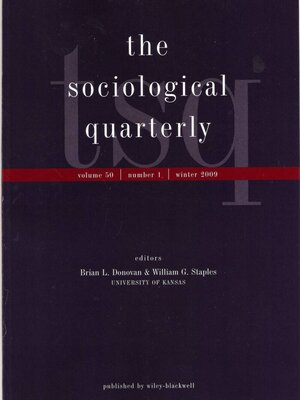
by Kevin T. Leicht
2016. The Sociological Quarterly 57(2): 211-231
Sociologists have spent a great deal of energy studying social inequality, but in this presentation I suggest that we need to refocus our efforts a bit. I examine four popular myths among the general public, and among some in sociology, regarding the drivers of extreme inequality: (1) that most inequality is generated by race and gender, (2) that most inequality is driven by educational inequality, (3) that most inequality is driven by differences in family structure, and (4) that most inequality results from face-to-face interactions. I provide preliminary evidence that our explanations need some work. That work involves recognizing that most inequality is generated within demographic groups and that this inequality is growing rapidly. It also involves recognizing that there are few ways to incorporate underrepresented groups into the mainstream of a social and economic system where extreme inequality is getting worse and substantial percentages of the population face economic stagnation and downward mobility. The conclusion represents a call to focus on the most important group gap—the widening gap between the wealthy and the poor—and the mechanisms through which most people gain access to economic goods, services, and social respect—jobs and money.